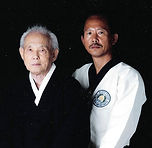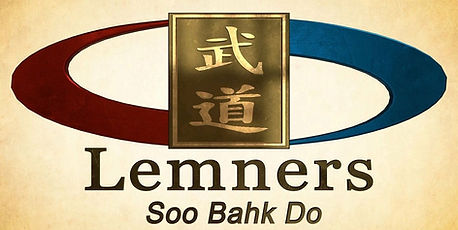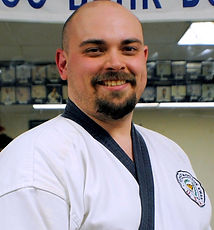The concept of Dodeok ( Do/Duk) Pt. 1
- Steven Lemner
- Mar 20, 2022
- 3 min read

Part 1
Terms:
Do: Way
Deok (Duk): Virtue
Chang Shi Ja: Founder
Moo Sang: Invisible “action”
Yu Sang: visible “action”
During the 50th anniversary celebration in Korea the founder Hwang Kee spoke about the term Dodeok. Basically the term is made of two parts. First “Do”, the laws of nature. Second “Deok” ( Duk), the laws of man. The concept of Umyong is this relationship for our understanding. It’s interesting to note that the Korean way of presenting it is to say it as a whole, Umyong. The belief is they can’t be separated. That you have to have one for the other to be in harmony. The line on the Kuk Gi: (Korean flag), that separates the two colors is Umyong. The balance of nature of which mankind is part of in the big picture.
“Deok” (Duk / virtue)
I will begin with the second part and it’s meaning to us as martial artist.
Deok are the virtues we hold with great importance as the philosophical foundation of our art. The eight key concepts, ten articles of faith, five Moo Do values, mission 2000, Moo Do Ja Seh, Moodoin, Ship Sam Seh, to name a few.
A. The eight key concepts:
The eight key concepts are what the student begins to connect to in the art. The foundation of which the others are built on. They are built in an order in which each builds on the other in action.
1. Young Gi: (brave energy), Courage: The courage to begin, to trust the unseen, to enter into growth. It is required through out our training for us to keep growing.
Chun Shin Tong Il: (govern/spirit/self/one) Concentration: To govern and control ourselves in a focused manner in all aspects of life.
Ineh: (internal/ patience) endurance: understanding everything takes time to grow, we face our challenges with patience to allow our mind and body to intake the lessons given.
Chung Jik (Right / Straight) honesty: being honest with our-self first and actions we take for the “right” reason. Looking within ourselves to see what are needs are in mind and body.
Kyum Son: (humble/ modesty ) humility: humility to know our needs and growth. Cho Shim (beginners mind) stays connected throughout our training.
Him Cho Chung: (Power/Manage / Right) control of power: as we develop into leadership roles in visible action we hold great responsibility to our-self and others. Our actions, words hold great strength.
Shin Chook: (Relaxation/Expand/ Tension/Shrink)relaxation / tension: the flux of energy of both mind and body is directly related to the laws of nature and it’s natural flux.
Wan Gup: (Loose/Slowness Hurry/Fast) speed control: understanding the need for taking action in various mental and physical actions.
The first five concepts are spiritual aspects of training (Moo Sang)
Yong Gi - Courage
Chung Shin Tong II - Concentration
In Neh - Endurance
Chung Jik - Honesty
Kyum Son - Humility
The next three concepts are “physical and internal” aspects of training (Yu Sang)
Him Cho Chung - Control of power
Shin Chook -Tension and relaxation
Wan Gup - Speed control
With this said, they can be “used” in both as Philosophical aspects as you can think of examples and how they can relate on both physical and mental applications. They can also be “seen” (Yu Sang) in actions.
Hence the “Do” relationship.
If we look at them as not only individual concepts, but in the order they are we can see how the connect and build, and then recycle. This is the progress of “Do”. The natural cycle of life and learning.
Chang Shi Ja, Hwang Kee has stated that the focus of our training is not the physical technique, but rather mental development, and the Eight Key Concepts develop the total person. Integration of these concepts into personal life allows the individual to become more than an athlete. The benefits of using these concepts and the ultimate purpose of training is a rejuvenation and expansion of our lives.
“If a diamond is not polished it will be unable to show the great luster of the diamond itself. Even though we say the martial arts are good, we cannot show the great value of the art if we do not practice it with effort.” Hwang Kee






























Comments